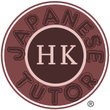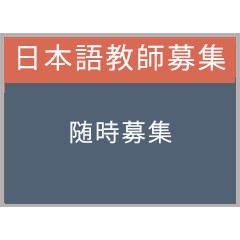Japanese Learning in Hong Kong
Native Japanese Tutor HIROKI

Native Japanese Teacher HIROKI
Japanese Teaching Experience 10 years
Native Language Japanese
Language Ability Intermediate in English, Cantonese and Mandarin
Born NAGANO – Japan
Teaching Area TST, Prince Edward, Mong Kok, Jordan, Hong Kong Island and N.T. etc
Japanese Courses Provided by HIROKI
Hong Kong Native Japanese Tutor HIROKI
My name is Hiroki, my students call me “Big Tree Sensei” (大樹老師). I have been working as a Japanese Tutor in Hong Kong over 10 years. Most of my students are college students, OL (office ladies) and housewives. I like travelling in Japan while many of my students do the same. They share their travel experiences in Japan with me. I am impressed that they know more popular Japanese products and sight-seeing spots than I, as a local Japanese do. I am pleased to tell you more about Japanese-culture, manners, history and more, if you are interested.
I help my students passing the Japanese Language Proficiency Test at one entry.I am also experienced in tailor-making Japanese learning courses to fit individuals’ needs, more than proficiency tests. Let’s start your journey to Japanese language, our culture and more fun!Check Details
みなさん こんにちは 年の割りには若く見える日本語教師のHirokiと申します。日本語教師養成講座終了後、東京の日本語学校で、クラスを受け持ち、香港では非常勤講師として 日本語を伝授っして来ました。現在では小さいながら、教室を持ち、個人で日本語を伝授しています。学生たちのレベルは様々で、大学生、社会人の方が授業を受けています。私の趣味は旅行なのですが、学生たちも旅行が大好きです。特に日本の話題になると、目が輝き、わたしよりも色々なことを知っているので、いつも感心させられます。
そんな学生達ですが、こつこつと勉強してくれて、日本語能力試験には必ず1回で合格してくれるというとても優秀な学生達なんです。勉強の目的は様々ですが、能力試験に合格したい方、是非お手伝いさせていただきます。また、自分の意見などがはっきり言えるように、日本語でCOMMUNICATIONができるように、いっしょに勉強しましょう。日本語に慣れて貰うため、直接法で伝授するのが、いいと思いますが、もし理解できないときは、いろいろな方法で伝授いたします。よろしくお願いいたします。
Private Japanese Lessons and Personalized Programs
For private lesson, I will use picture, vocabulary cards and Japanese songs for junior student. Japanese manners and conversation practice for traveler to Japan. Grammar, Vocabulary, Listening and supplementary text practice for Japanese-Language Proficiency Test.
Japanese Teaching Qualifications and Experience
I hold a Certificate of taken 420 Hours Course in Human Academy Japanese Language School in Tokyo, Japan and a Certificate of Japanese Teacher Training Course in Pasona Education in Hong Kong. I’m native Japanese with over 10 years’ experience teaching Japanese in Hong Kong. My student age range is width from 5 years old to 48 years old.
Japanese Teaching Approach
生徒のレベルに合わせ自作の文法・語彙などのプリントを用意しております。テキストbookはあくまでもサブ機能復習用のテキストbookも用意します
Tailor made program to fulfill your needs of learning Japanese; whatever for your hobby, for your job, for your business, for your Japan tour or for the Japanese-Language Proficiency Test.
Ask HIROKI Teacher Japanese Learning Questions
HIROKI先生へ「だけ」と「しか」の違いについて教えていただけないでしょうか?
HIROKI先生’s Answer:
だけ・しか は 英語 では only の 意味。
例) 私 の 会社 は 1週間 だけ 休めます。
私 の 会社 は 1週間 しか 休めません。
「 しか 」 は 常に 否定形 と 呼応し、「それ以外はない」
という 限定の意味 を 表す。 みんなの日本語 (初級2(27課)
初級者 には だけ の 後 は 肯定 ・ しか の 後 は 否定形
Negative に なる と 説明して 来ました。
HIROKI先生へ「水を飲みたい」と「水が飲みたい」の違いについて教えていただけないでしょうか?
HIROKI先生’s Answer:
★ 水を飲みたい=水が飲みたい
みんなの日本語初級1(13課)では目的語を示す
助詞「を」を代わりに助詞「が」を使うことができる。
文法 動詞ます形+たい です。
だけど、助詞の「を」は願望の対象を示すとき。
対象を表す場合は「が」より「を」を使うことが多い。
★ 水が飲みたい助詞「が」の場合は、欲望・欲求を示すとき。
HIROKI先生へ 「~が~てある」と「~を~てある」の違いについて説明してくれませんか?
HIROKI先生’s Answer:
例) 机 の 上に テープレコーダー が 置いて あります。
文型 : 動詞(て形) + あります
★ ~ が ~ てある (結果の残存(状態) (1)
人 の 意図 や 目的 を 持って 行った 行為 の
結果 として の 物 の 状態 を 表す (みんなの日本語30課)
~ が + 意志動詞(他動詞) + である。
例) 「窓 が 開けて ある 」 ・「エアコン が つけて ある」
● 行為 に 注目して いる ・ 人 が 意志(意図)的 に
その 出来事 を 引き起こした と 考える。
物 の 現在 の 状態 の 説明
例) 結婚式 の 手配 を・は もう して あります。
文型 : 動詞(て形) + あります
★ ~ を ~ てある ( 準備 の 状況 ) (2)
例文) 花見 の 会場 を ・ は もう 下見 に 行ってある。
準備 の 状況 の 説明
Ask HIROKI Teacher Japanese Culture Questions
人を訪問するとき、あらかじめ電話で日時を約束する、電話をしないで訪問してはいけない。
約束した時間より早く行ってはいけない約束の時間の時間に行くなど、必ずマナーを守らなければならない。また、手土産などを渡すときは、部屋に入ってから渡すようにすること。でも、花や生鮮食品は玄関で渡したほうがいいです。渡すときには「どうぞお使いくだい。」とか「お口に合わないかもしれませんが、召し上がってください 」など、日本文化には様々なルール、表現があり、その時に応じて、言葉を選ぶ、ことなどが必要とされて来ますので、あなたの国の文化と日本文化を比較しながら、学んで参りましょう。


Stay in Touch
RSS
Facebook
Twitter
Google +1